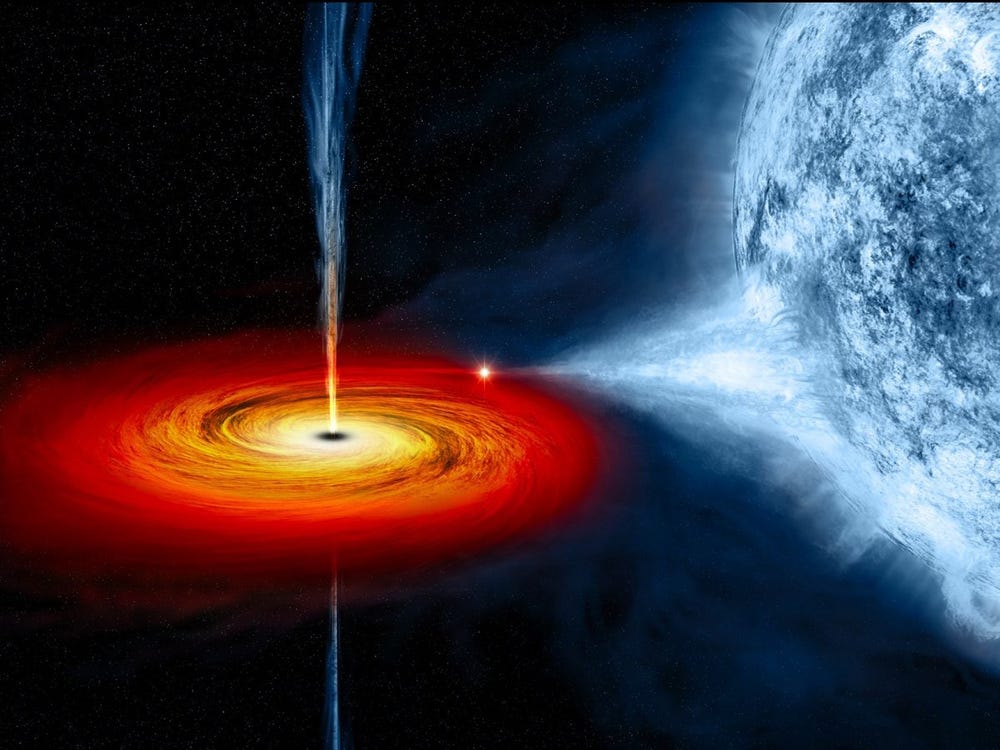Black holes continue to fascinate astronomers and the general public alike, with their mysterious and mind-bending properties. They are some of the densest objects in the universe, with gravitational forces so intense that they bend light and even time. Despite their name, black holes are not entirely black and emit a form of radiation called Hawking radiation. These cosmic giants also come in a variety of sizes, from the microscopic to the supermassive, and can even merge into larger black holes. Studying black holes has helped advance our understanding of the universe and concepts like general relativity and cosmology.
10 Mind-Blowing Facts About Black Holes
1. Black Holes are Not Actually Black
Black holes may appear black, but they are not entirely black. Black holes emit a form of radiation, called “Hawking radiation,” which is a type of thermal radiation. Though Hawking radiation is too weak to detect from afar, it gives off the impression that black holes glow slightly.
2. The Size of a Black Hole Matters
The size of a black hole matters, ranging from the microscopic to the supermassive. Smaller black holes form from a single star collapsing, whereas more massive black holes come from larger star clusters.
3. Black Holes Have a Huge Amount of Gravity
One of the most fundamental characteristics of black holes is their gravitational force. Black holes are some of the densest objects in the universe and attract matter so powerfully that they can bend light and even time.
4. You Can’t Escape a Black Hole’s Gravity if You Enter its Event Horizon
The point of no return for a black hole is its event horizon, which is the place where escape velocity begins to exceed the speed of light. Once you cross this boundary, there is no going back; you are trapped inside the black hole.
5. Black Holes Can Merge
Black holes can merge into even larger black holes, forming what’s called a “supermassive” black hole if they combine with other black holes. These merging events can produce massive gravitational waves that can be measured.
6. Time Passes Differently Near Black Holes
Time dilation is also observed near black holes because of their incredibly powerful gravity. People and objects approaching a black hole will appear to slow down relative to an observer far away.
7. There’s No Single Book or Scientific Material to Study Black Holes
Black holes are an incredibly complex topic, involving mathematics, physics, and astronomy. Students interested in the subject will need to study all three fields.
8. Black Holes Outlast Anything in the Universe
Black holes are predicted to last longer than the ever-expanding universe itself. As matter falls into a black hole, it heats up and adds to the hole’s mass, potentially making it last forever.
9. The Biggest Black Hole is More Than 40 Billion Times Bigger Than the Sun
One of the largest black holes discovered, called TON 618, is more than 40 billion times more massive than the sun. This supermassive black hole is located around 10,000 light-years away from Earth.
10. Black Holes Could Help Us Understand the Universe Better
Though the concept of a black hole is intimidating and somewhat frightening, they have been a massive help in advancing modern science and understanding the universe. Black holes have allowed us to study concepts such as general relativity and cosmology, paving the way for future discoveries.
